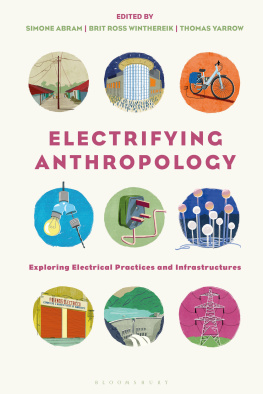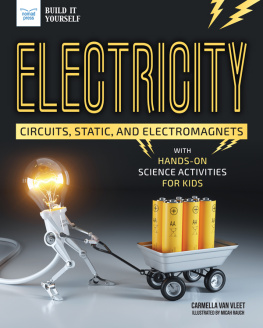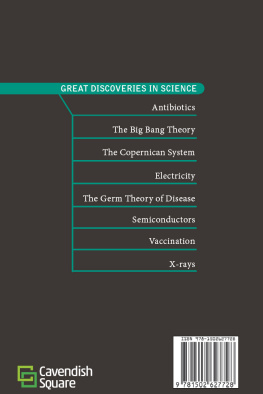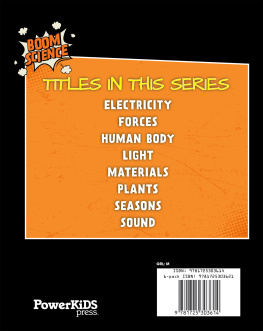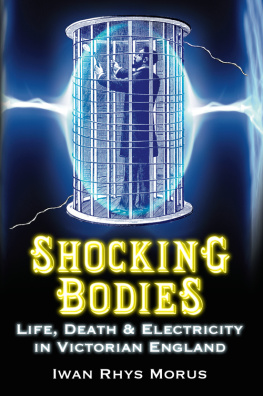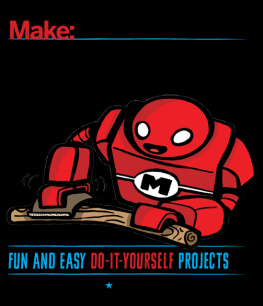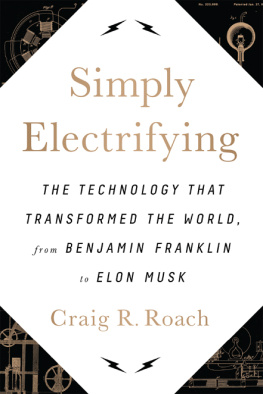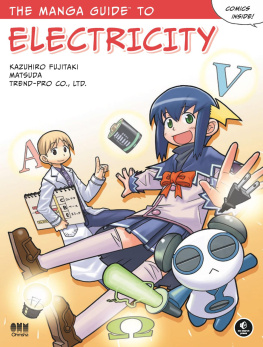Electrifying Anthropology
Also Available from Bloomsbury
Caravans , Hege Hyer Leivestad
Homely Atmospheres and Lighting Technologies in Denmark , Mikkel Bille
Uncertainty and Possibility: New Approaches to Future Making in Design Anthropology , Sarah Pink, Yoko Akama and Shanti Sumartojo
Electrifying Anthropology
Exploring Electrical Practices and Infrastructures
Edited by
Simone Abram, Brit Ross Winthereik and Thomas Yarrow
With illustrations by Anjan Sarkar

Contents
This collection explores the infrastructures that have become part of our lives by considering electricity as a form of life that enables certain life forms while making others more difficult. It grew out of a Wenner-Gren sponsored workshop at Durham University in 2016, in which scholars working across anthropology, science and technology studies, geography, history, design and cultural studies met to pursue an interest in electricitys socio-materiality. This collection also includes contributions by scholars not present at the workshop.
The editors would like to express their thanks to Durham Energy Institute for workshop support, especially Lynn Gibson; the Anthropology Department at Durham University; Dr Christopher Crabtree at Durham University for facilitating a hands-on energy workshop during our Wenner-Gren meeting; Sandra Bell for support and advice throughout the process; and Lea Enslev at ITU Copenhagen for editorial assistance.
The editors would also like to thank the guest speakers who generously gave their time to participate in the original workshop, including Dominic Boyer, Dominique Desjeux, Annette Henning, Maja Hojer Bruun, Atsuro Morita, Sophie Bouly de Lesdain, Lea Schick, Laura Watts, Mike Anusas, Cymene Howe, Antti Silvast, Tanja Winther, Elaine Forde, Catherine Alexander, Taras Fedirko, Andres Luque Ayala and Ben Campbell.
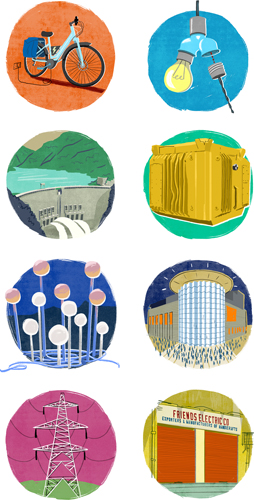
All chapters containing art are contributed by Anjan Sarkar.
Fixed tariff and metered tariff, 19141965. |
Matsushita Electric Companys advertisement for an electric foot-warmer, 1928. |
Cumulative number of installed electricity metres, 19071952. |
Home fires by cause, 19231960. |
Nagara Shi Harikiru , Tokyo Electric Power Company, 1964. |
Simone Abram is Professor of Anthropology at Durham University and co-director of the Durham Energy Institute. She directs the innovative interdisciplinary MSc in Energy and Society at Durham University, and from 2016 until 2021 she is a co-investigator at the UK National Centre for Energy Systems Integration.
Gretchen Bakke holds a PhD from the University of Chicago in Cultural Anthropology. Her work focuses on the chaos and creativity that emerge during social, cultural and technological transitions. She is a former fellow of Wesleyan Universitys Science in Society Program and a former Fulbright fellow, and she is currently a guest professor at IRITHESys at Humboldt University Berlin. Her book The Grid was selected by Bill Gates as one of his top five reads of 2016.
Leo Coleman teaches anthropology at Hunter College, City University of New York. He is the author, most recently, of A Moral Technology: Electrification as Political Ritual in New Delhi and the editor of Food: Ethnographic Encounters.
Jamie Cross is a senior lecturer in social anthropology at the University of Edinburgh. His current research focuses on the socialmaterial politics of electrification and solar energy in contexts of global poverty. He is the author of Dream Zones (2014, Pluto Press).
Casper Bruun Jensen is a specially appointed associate professor at Osaka University. He is the author of Ontologies for Developing Things (Sense, 2010) and Monitoring Movements in Development Aid (with Brit Ross Winthereik) (2013, MIT) and the editor of Infrastructures and Social Complexity with Penny Harvey and Atsuro Morita (Routledge, 2016). His present work focuses on knowledge, infrastructure and practical ontologies in the Mekong river basin.
Joshua Kirshner is a lecturer in human geography in the Department of Environment and Geography at the University of York. His current research focuses on developing people-centred and justice-based approaches to sustainable energy. He was recently a co-investigator on a project that examined energy access amid sociopolitical conflict in urban Mozambique, supported by the British Academy.
Tristan Loloum has a PhD in social anthropology (EHESS, 2015) and an MSc in Integrated Planning (Lleida, 2010). He is currently a research engineer at the University of Tours and honorary research fellow at Durham University (Anthropology Department). Specializing in the study of heritage, tourism and social change, his latest research addresses the cultural politics of energy, questioning the role of energy tourism, industrial heritage and art sponsorship in the public understanding of energy and the influence of energy corporations.
Nathalie Ortar is Senior Researcher in anthropology at the cole nationale des travaux publics de ltat (ENTPE). Her research interests focus on the meaning of dwelling as well as on the consequences of energy transition in daily life and its moral and symbolic implications.
Canay zden-Schilling is an anthropologist of capitalism, energy and technology. She is a postdoctoral fellow in Data Sciences and Society and a lecturer in Anthropology at Johns Hopkins University. Canay received her PhD from the Massachusetts Institute of Technology in 2016. She is currently completing an ethnographic book on electricity trading in the United States.
Sarah Pink is Professor of Design and Emerging Technologies, and Director of the Emerging Technologies Research Lab at Monash University, Melbourne, Australia. Her research is interdisciplinary, international and interventional, and has recently focused on questions relating to the design and use of emerging technologies (such as autonomous driving vehicles). Her recent collaborative books include Uncertainty and Possibility (2018) and Anthropologies and Futures (2017).
Marcus Power is a professor of human geography at Durham University. His research interests include critical geopolitics and the spatialities of (post)development; visuality and popular geopolitics; energy geographies and low- carbon transitions in the global South; and ChinaAfrica relations and the role of (re)emerging development donors in SouthSouth cooperation. He is author of Geopolitics and Development (Routledge, 2019).
Hiroki Shin is a research fellow in the Department of History, Classics and Archaeology, Birkbeck College, University of London and the co-investigator of the research project Material Cultures of Energy. His recent publications include Energy/Culture: A Reading Guide for Historical Literature, Science Museum Group Journal (2018); and, with Rebecca Wright and Frank Trentmann, Power, Energy and International Cooperation: A History of the World Energy Council, 19232018 (Oekom, forthcoming).
Brit Ross Winthereik is Professor in the Department of Business IT at the IT University of Copenhagen. She has published widely in anthropology and science and technology studies (STS) on information infrastructures, ethnographic methods, environment, organization and accountability. She is lead investigator of the research project Data as Relation: Governance in the Age of Big Data.

